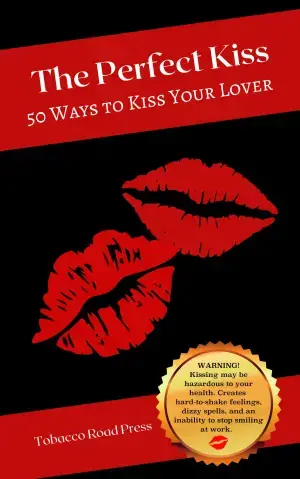Exploring the Cosmos: A Journey Through The Big Book of Science Fiction
When I first laid eyes on The Big Book of Science Fiction, edited by the dynamic duo Ann and Jeff VanderMeer, I felt a rush of nostalgia mixed with curiosity. Here, posed on my shelf, was a hefty tome promising to encapsulate the very essence of a genre that has sparked my imagination since childhood. As I cracked it open, I knew I was embarking on a journey that spanned galaxies, timelines, and the infinite realms of human thought.
A Tapestry of Voices and Ideas
What truly captivated me about this anthology was its breadth. With nearly 1,200 pages featuring tales from luminaries like H.G. Wells, Ursula K. Le Guin, and Arthur C. Clarke alongside emerging voices from around the globe, every story acts as a portal to different worlds and perspectives. The editors have curated a collection that is as diverse as it is profound, representing over 25 countries and myriad voices that stretch the boundaries of what science fiction can be.
Reading this book feels like participating in a grand conversation about humanity’s future, our fears, and our hopes. The themes are as varied as they are engaging: What if life were never-ending? What if technology turned against us? These questions linger long after the last page is turned. From the eerie cautionary tales that remind us of technology gone wrong to the optimistic narratives envisioning a brighter world, each story resonates with current societal issues.
Writing Style and Narrative Techniques
The writing style varies significantly across stories, reflecting the unique voice of each author. Some pieces are raw and visceral, while others embrace a more lyrical, almost poetic quality. The pacing, too, dances between the quickened heartbeat of space operas and the contemplative nature of speculative truths, keeping me engaged throughout.
One notable highlight for me was the inclusion of W.E.B. Du Bois’s The Comet, a tale that intertwines themes of race and apocalypse in a way that was both startling and refreshing. It’s these unexpected gems, alongside more familiar fare, that really resonated with me and expanded my understanding of the genre.
Reflecting on Reader Experiences
Many readers have praised The Big Book of Science Fiction for its remarkable collection ideas. One particular review struck a chord with me; a reader noted, “It read like a textbook, but every entry was worth its weight in gold.” I couldn’t agree more. The introductions by the VanderMeers serve as thoughtful guides, aiding in contextualizing stories that might otherwise feel disconnected from one another. I found myself lingering in these introductory pages, soaking in the history and evolution of the genre.
Who Should Read This?
I wholeheartedly recommend this anthology to anyone who has even a passing interest in science fiction. Whether you’re a seasoned reader or new to the genre, The Big Book of Science Fiction offers something for everyone. The stories challenge preconceptions and invite readers to think critically about the world around us. They’re not just stories; they’re reflections of our collective psyche and aspirations.
In conclusion, reading this anthology felt like an exploration across time and space, a reminder of the power of storytelling. It not only deepened my appreciation for the genre but also enriched my understanding of our world’s complexities. So grab a cup of tea, settle in, and prepare to embark on an odyssey of imagination that will challenge your views and ignite your curiosity. You won’t be disappointed!
You can find The Big Book of Science Fiction here >>






